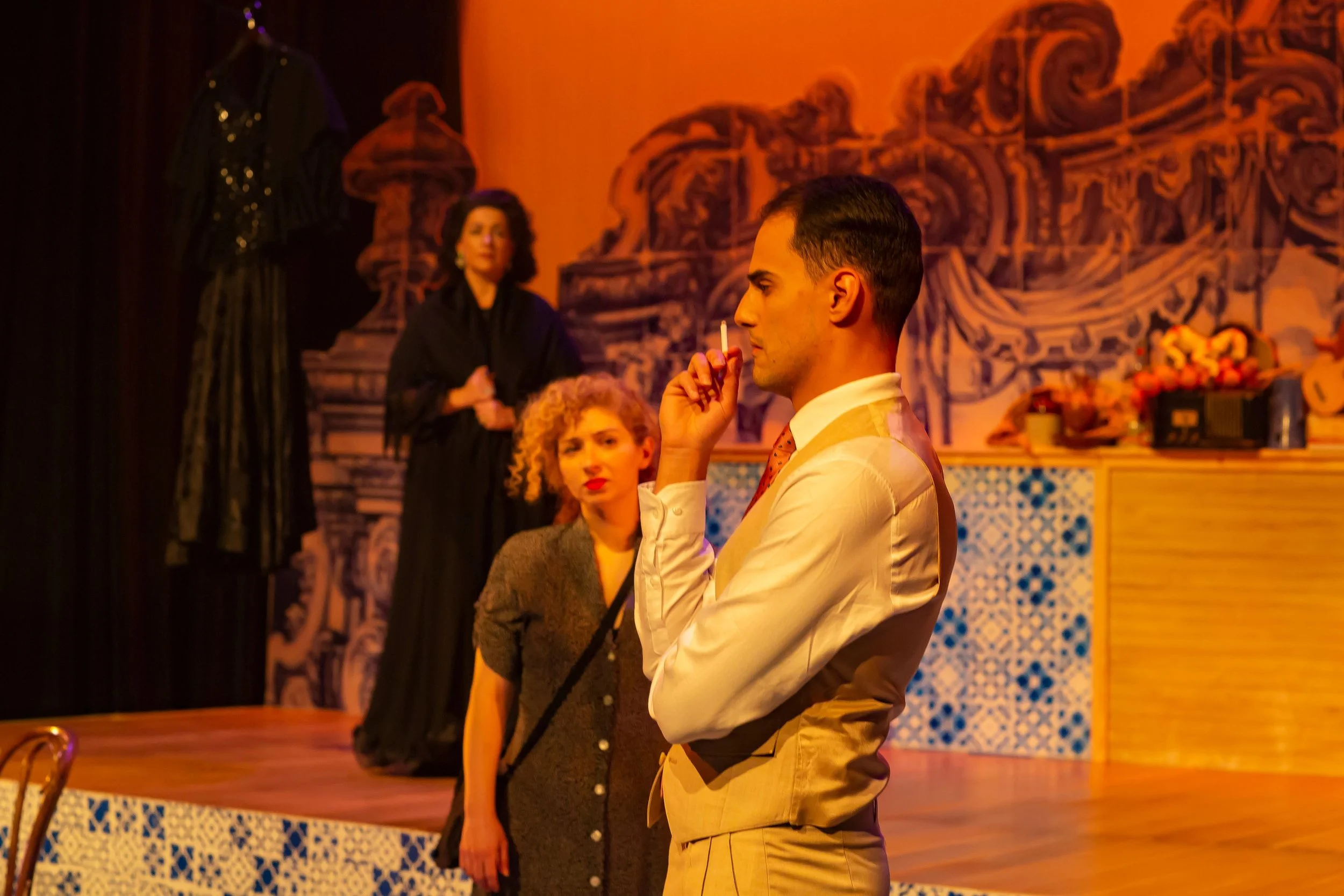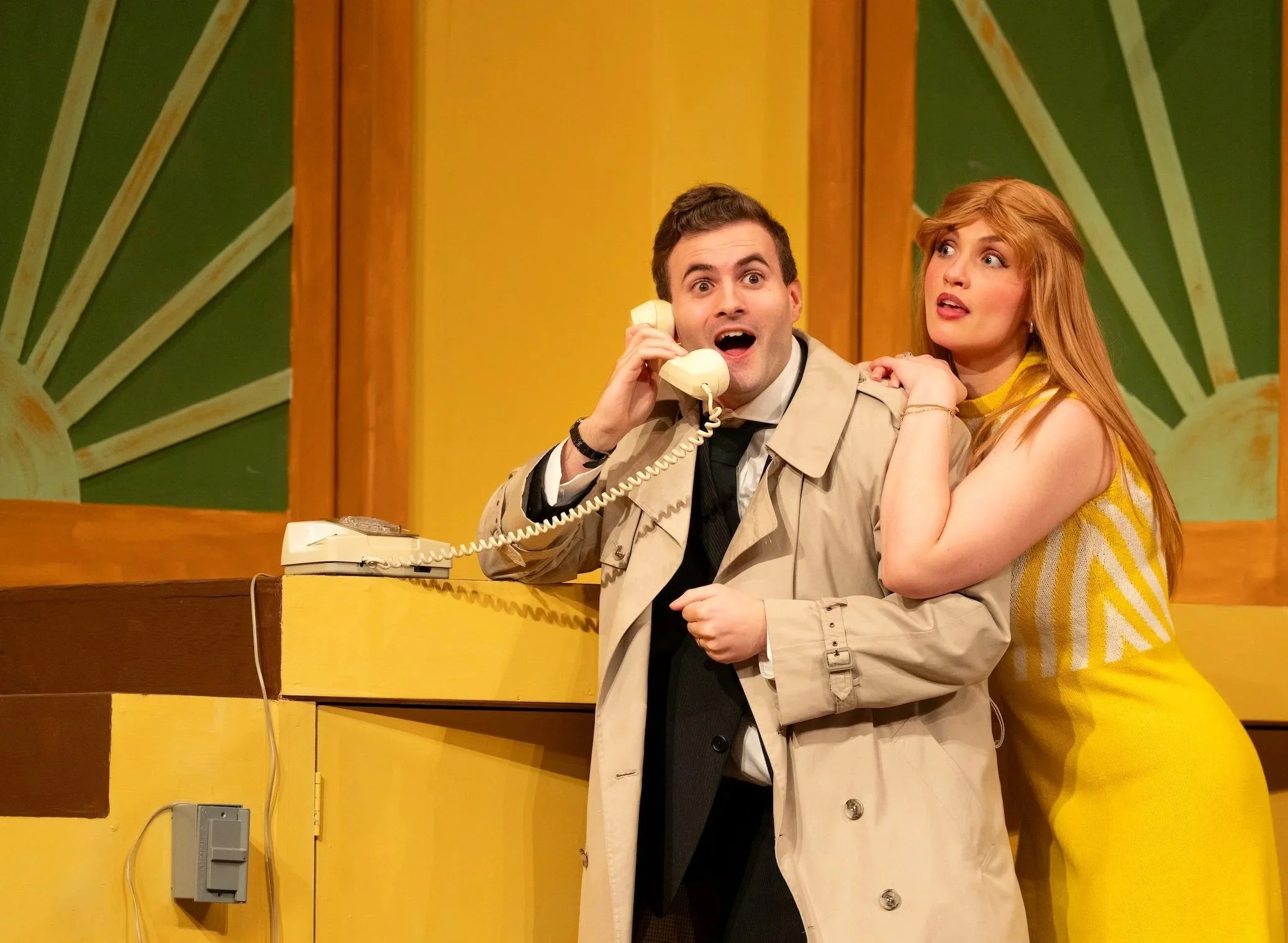Theatre review: A search for saudade pays off in Fado: The Saddest Music in the World
Jaw-dropping vocals and subtle romantic rekindling are the highlights of Elaine Ávila’s musical trip to Portugal
Fado: The Saddest Music in the World. Photo by Derek Ford
Firehall Arts Centre and Puente Theatre present Fado—The Saddest Music in the World to February 5 at the Firehall Arts Centre
SPOILER ALERT: THE payoff is totally worth it.
Elaine Ávila’s play Fado: The Saddest Music in the World is the story of Canadian-born Luisa (Natércia Napoleão) and her attempt to get in touch with her Portuguese roots by visiting Lisbon with her mother, Rosida (Lucia Frangione).
Luisa’s frame of reference for Portuguese culture comes mostly from Rosida’s adoration of Amália Rodrigues, the real-life singer who popularized the country’s national music, fado, to a worldwide audience. When the play begins, in 1999, Amália, as she was popularly known, has just died, and Rosida is mourning the loss by playing her records, which she has spread out on the floor of her Vancouver home.
When Luisa notices that one of the LP’s covers has been autographed by someone named Antonio, she gets curious. Rosida reveals that Antonio was her childhood friend, a talented guitarist who grew up to become one of the great Amália’s accompanists.
Luisa makes it her mission to meet Antonio (Judd Palmer) and learn the ways of fado, but when she arrives in Lisbon and sings her mother’s favourite number, “Uma Casa Portuguesa”, Antonio scoffs. With its lyrics of “It is good/That people never denounce/The joy of poverty”, the song is pure fascist propaganda, favoured by the government of the late dictator António de Oliveira Salazar as a means of convincing the people of Portugal that they ought to be satisfied with less than they rightly deserved.
More importantly, the guitarist argues, the song fails to embody the true driving force behind fado, which is the soul-searing sense of longing known as saudade.
It seems that the loss of her father and her sense of disconnection from the culture of her ancestors has not been enough to instill in Luisa a sufficient quantity of that magical ingredient. Conveniently (once again, spoiler alert), a holiday fling with a philandering poet named Tristão (Chris Perrins) nudges the aspiring fadista’s saudade quotient into the acceptable range.
And that brings us to the payoff. When it all finally clicks into place, Napoleão lets loose with a closing number that she delivers with such draw-dropping vocal prowess that it becomes clear that Luisa’s fumbling attempts earlier in the play were actually a master class in restraint. Napoleão has serious pipes, to the extent that she overshadows Sara Merreiros as the ghost of Amália, the Queen of Fado.
It must be said, however, that Napoleão’s superb singing outshines her own acting. In that department, Pedro M. Siqueira earns praise for his turn as Luisa’s cousin Rui, whose drag performance as Amália is a highlight.
Frangione and Palmer deliver the show’s most subtle and understated moments, as Rosida and Antonio tentatively rekindle the spark of a romance that was denied them decades before.
They’re great, but it’s really Luisa’s final embodiment of her own elusive saudade that will stick with you—and have you checking TripAdvisor for affordable flights to Lisbon.













